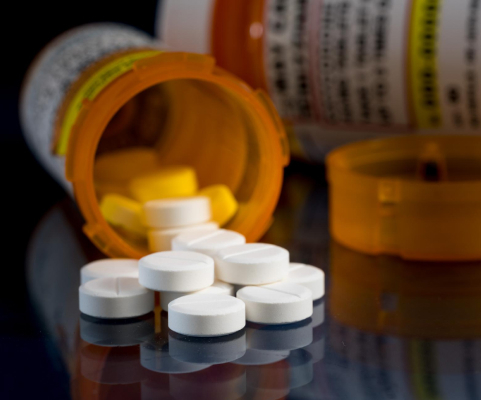Watching someone you love struggle with addiction is deeply painful. This battle isn’t fought alone, its shockwaves affect every family member, challenge friendships, and can even lead to tension with neighbors. It’s distressing to witness and even more challenging to live through, putting even the strongest family bonds to the test. Today, we’re focusing on the impact of substance use disorders on families. Our goal is to help you recognize early signs that indicate trouble, guide you through these difficult times, and support your efforts in finding help for your loved one. We understand how hard this journey can be, but remember, you’re not walking this path alone. We’re here to guide you and your family through this challenging period.
Substance Abuse Problem in Florida
Florida is facing a serious problem with substance abuse. Drug addiction is an issue that causes problems for people from all walks of life. Drug addiction impacts your health, relationships, and your daily life. Without professional intervention and support, drug addiction can be fatal. In 2021, there were more than 7,800 drug overdose deaths in the state. This figure is a call for you to stay aware and get involved so we can work together and solve the challenges caused by substance abuse.

What Is the Impact of Substance Use Disorders on Families?
If you have a problem with addiction in your family, you are likely going through a lot. The impact of substance use disorders on families is huge.
Strained Relationships
The impact of parental substance use disorder on the family changes everything, making home life harder and affecting everyone’s feelings and relationships. What used to be easy talks and laughter might now feel like walking on eggshells, with every word creating more distance instead of bringing you closer. This growing emotional gap can make your home feel less like the safe haven it once was, as the shadow of addiction shifts the focus away from the warmth of family life to the cold realities of the disorder. Trust, the foundation upon which your family is built, may begin to crumble, making it a struggle to keep those crucial, loving connections alive.

Get Your Life Back
Find Hope & Recovery. Get Safe Comfortable Detox, Addiction Rehab & Dual Diagnosis High-Quality Care.
Hotline (855) 459-2880Financial Strain
The money that should be helping to create a stable, comfortable life for your family ends up redirected to support the addiction. From the costs of substances to treatment programs and potential legal issues, the financial burden piles up. It puts an economic hardship on your family. This financial pressure adds an extra layer of stress, creates a constant worry about meeting basic needs, and makes you feel unstable.
Social Judgment and Isolation
Substance abuse within the family sometimes spills into the broader community and affects how you interact with people around you. You might face judgment, stigma, and isolation from friends, neighbors, and colleagues. Society’s misconceptions about addiction make it challenging to find understanding and support. These misconceptions make it difficult for you and your family to reach out for help. Experiencing this kind of isolation shows just how much addiction affects not just the person using substances but everyone around them. It’s a clear example of why addiction is a family disease, impacting everyone connected.
Emotional Exhaustion
On a personal level, when your family member deals with substance abuse, it leads to emotional exhaustion. The constant worry about their well-being can impact your mental health. This can manifest in physical symptoms and affect your overall well-being. You might be overwhelmed by the stress and anxiety coming from the unpredictable nature of addiction. This makes attention to your mental health and self-care necessary.
Signs of Substance Abuse
Substance abuse can be fatal. In 2019, there were 286 drug overdoses in Lake Worth, Florida. To prevent the fatal consequences of drug addiction, you must first be able to recognize the early warning signs of substance abuse. You need to look out for behavioral changes and physical symptoms and take measures to help your loved one.

Behavioral Changes
Behavioral changes you should pay attention to are:
- Social isolation: If your loved one who was once social and engaged starts pulling away from friends and family, preferring to be alone, it could be a sign.
- Erratic behavior: Noticeable mood swings, unpredictable actions, or reactions that are inconsistent with their usual demeanor may indicate an issue.
- Decline in performance: A significant drop in performance at work, school, or in personal responsibilities might be a red flag for substance abuse.
- Secretive behavior: Keeping activities and whereabouts under wraps, being unusually secretive, or avoiding discussions about their day-to-day life may signal an issue.
- Changes in the peer group: A sudden shift in social circles, especially towards friends with a reputation for engaging in substance abuse, can be concerning.
First-class Facilities & Amenities
World-class High-Quality Addiction Rehabilitation Treatment
Renowned Addiction Centers. Serene Private Facilities. Inpatient Rehab Programs Vary.
Addiction Helpline (855) 459-2880Proven recovery success experience, backed by a Team w/ History of:
15+
Years of Unified Experience
100s
5-Star Reviews Across Our Centers
10K
Recovery Successes
- Comprehensive Dual-Diagnosis Treatment
- Complimentary Family & Alumni Programs
- Coaching, Recovery & Development Events
- Comfortable Onsite Medical Detox Center
Physical Symptoms
Pay attention to these physical signs, which may indicate a substance abuse issue in someone close to you:
- Weight fluctuations: Unexplained weight loss or gain could be an indicator of changes in eating habits associated with substance abuse.
- Poor hygiene: Neglecting personal cleanliness and grooming, such as skipping showers or neglecting dental care, may reflect a decline in self-care.
- Bloodshot eyes: Red or glassy eyes that are not due to lack of sleep or allergies could be a result of substance use.
- Unexplained injuries: Frequent bruises, cuts, or injuries with vague or inconsistent explanations may suggest risky behavior associated with substance abuse.
- Changes in sleep patterns: Noticeable disruptions in sleep, whether it is insomnia or sleeping excessively, may be linked to the influence of substances on the individual’s body and mind.
How to Approach Your Family Member about Substance Abuse
When talking to your family member about substance abuse, you should communicate effectively. Start by showing compassion and using “I” statements to express your feelings without accusing them. Listen actively and non-judgmentally to create a safe space for them to share their emotions. Be open and honest when talking to them. Avoid confrontations and blame and focus on showing care and understanding. Use open-ended questions to encourage them to share more. Try to build trust by telling them that you want to work together to find a solution that benefits their health. Having a constructive conversation with your family member will make them feel heard and supported.

Encourage Your Family Member to Seek Help
To encourage your family member to seek professional help, especially when considering the addiction effects on families substance abuse and family relationships, first, you need to assist them in overcoming the negative perceptions and feelings associated with seeking help. Explain that asking for assistance is a sign of strength. It is a decision that will help them grow and get better.
Share stories of successful recovery of people you both know who have overcome similar challenges with the right support, highlighting how they navigated the addiction effects on families, substance abuse, and family relationships positively. Highlight the benefits of seeking help to motivate them. The whole process might seem overwhelming, so make sure to encourage small and achievable goals and emphasize the positive outcomes of those initial steps.
How You Can Help Your Family Member in Recovery
There are many ways family can help in recovery. To support your family member, attend therapy sessions together to let them know you are there for them. Encourage positive habits and routines that support their recovery. Recovery takes time, patience, and persistence. Be prepared for setbacks and be aware that progress comes in small steps. Motivate your loved one to keep going, and let them know you will be there to support them, regardless of how fast their recovery is going.
The Benefits of Professional Involvement in Intervention Process
Make sure to involve professionals in the intervention process. Here at Level Up Treatment Lake Worth we ensure our communication is focused, respectful, and constructive. Our experience helps us anticipate potential challenges and get rid of tension. This way, we create an environment in which your loved one feels safe and willing to express their feelings.
Our structured approach to the intervention minimizes the risk of escalating emotions and conflicts. We can handle resistance and defensiveness and guide conversations toward a positive outcome. Also, we ensure that you and your family are informed and prepared to take the next steps in recovery. Moreover, we can educate you about addiction and help you grasp the nature of the issue. This will help you support your loved one in a meaningful way.
Additionally, we provide access to substance use prevention programs for families, equipping you with the tools and knowledge to prevent future issues and support a healthy, substance-free lifestyle for all family members.

What Are the Types of Intervention?
Each intervention approach suits specific situations, which makes the intervention appropriate and successful. Here is an overview of the different types of interventions:
- Simple intervention: This method is useful if your loved one is cooperative but may not fully understand how serious their addiction is. It involves a simple, planned conversation in which everybody expresses their concerns and encourages the person to seek help.
- Crisis intervention: If the substance abuse is severe and there is a high risk of harm, you need immediate action. The purpose of crisis intervention is to quickly address the crisis and guide your family member toward professional help.
- Classic intervention: An effective way to help your loved one is to have a planned meeting with a professional interventionist who will guide the conversation. You and other family members can express your feelings and concerns, and the interventionist will direct the conversation toward agreeing on treatment. This method is especially useful when your loved one is in denial or refuses treatment.
- Family system intervention: This approach is based on the family systems theory and involves other family members who are also struggling with the same type of addiction. This can be a great motivation to recover and undergo treatment. Also, it can repair and strengthen family bonds.
Customizing the Intervention Approach
Every person and every family situation is unique. Therefore, it is only right to approach everybody in a special way that will help them the most. Before the intervention, we thoroughly assess your family member’s addiction, mental health, and any co-occurring issues. This gives the information about the intervention strategy and ensures we address the unique challenges and motivations of your loved one. It is also important to be culturally sensitive. We consider the cultural background and make sure that the intervention respects your values and traditions. And, of course, we pay attention to how we communicate. We consider factors such as personality, preferred language, and emotional triggers.

Treatment Programs for Battling Substance Abuse
Substance abuse is a prevalent issue in the state of Florida. In 2019, there were 808 non-fatal drug overdose cases in Palm Beach County. Keep in mind that professional help and medical treatment are a must to prevent the consequences of drug addiction. Once you’ve supported your family member in the decision to seek help, exploring the available substance abuse treatment in Florida becomes the next crucial step.
- Detoxification (detox): Detox is the initial phase of treatment. It focuses on safely removing substances from the body. It is typically conducted under medical supervision to manage withdrawal symptoms and ensure we securely transition to the next phase of rehabilitation. This process is vital, and at Level Up, we offer a comprehensive medical detox in Florida to support this critical first step towards recovery.
- Residential rehabilitation: Your loved one will reside at a treatment facility in Lake Worth and receive 24/7 care, therapy, and support. This setting is particularly beneficial if they have severe addiction or co-occurring mental health issues.
- Outpatient programs: Outpatient programs grant your family member flexibility. They allow them to live at home while attending scheduled treatment sessions. This approach is suitable if your family member has a less severe addiction or transitions from residential rehabilitation.
- Telemedicine services: Addiction treatment is now easier to access thanks to telemedicine. With telemedicine, your loved one can talk to healthcare professionals over the phone or online. Telemedicine is a good choice if your family member cannot get in-person treatment because of where they live or their health.
Mental Health and Substance Abuse
Many people struggle with mental health issues. Between February 1 and 13, 2023, 32.3% of adults in Florida reported experiencing symptoms of anxiety and/or depressive disorder. If your family member is struggling with substance abuse, it is important to understand that they may also be dealing with mental health problems. Being aware of this can make the interventions more successful. Start by looking for signs of underlying mental health conditions that might contribute to or result from substance abuse. Common co-occurring disorders include:
- Depression
- Anxiety
- Bipolar disorder
- PTSD
In the case of co-occurring mental health issues alongside substance abuse, we address both issues simultaneously through therapy, counseling, and, if necessary, medication. We provide holistic support, including emotional, psychological, and social elements. Your active involvement in therapy sessions and effort to understand your loved one’s specific mental health condition will create a supportive environment and help them recover.

The Importance of Ongoing Support
To keep positive change going, you must ensure continuous support and counseling. After the intervention, set up a solid plan with regular follow-up sessions to stay on track and handle any challenges. Keep pushing for professional counseling – it’s a safe space to deal with emotions, develop coping strategies, and manage stress without resorting to substances. Join support groups and connect with peers for long-term recovery – it builds a community outside the family.
Families are of great importance in aftercare. Get involved in family therapy, keep communication open, and reinforce positive behaviors. This active role significantly boosts your family member’s sense of belonging. Keep an eye on progress and adjust plans when needed. Addiction recovery is dynamic, and staying flexible ensures that support remains effective.
Help Your Family Member Live a Healthy Life
Impact of substance use disorder on families, is huge. However, you need to provide emotional, practical, and moral support to your family member during difficult times. Your support will make a big difference. When you create an environment of understanding, empathy, and open communication, you help your loved one feel better emotionally. A strong support system will help them heal. It gives them reassurance and motivation while they work toward recovery.
Start a New Life
Begin with a free call to an addiction & behavioral health treatment advisor. Learn more about our dual-diagnosis programs. The We Level Up treatment center network delivers recovery programs that vary by each treatment facility. Call to learn more.
- Personalized Care
- Caring Accountable Staff
- World-class Amenities
- Licensed & Accredited
- Renowned w/ 100s 5-Star Reviews
We’ll Call You





